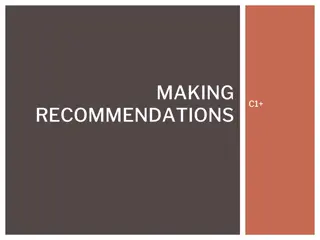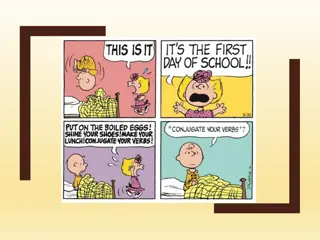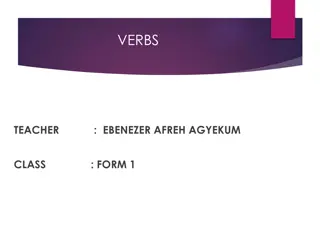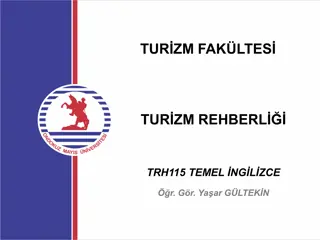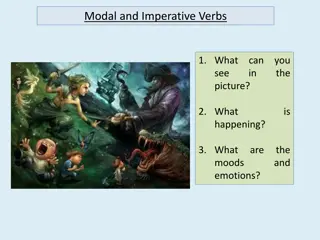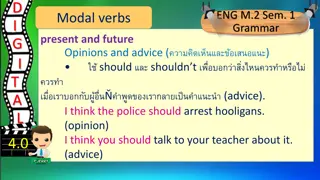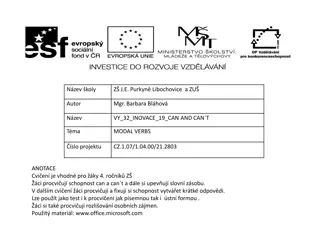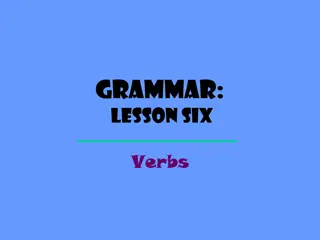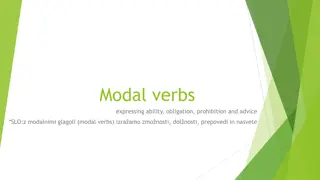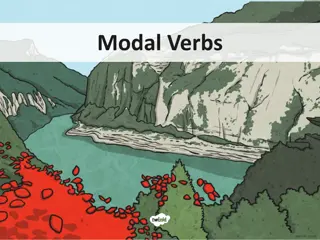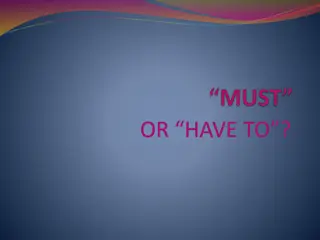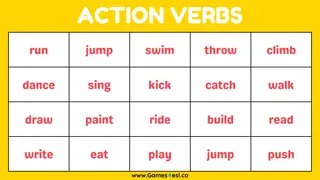
Mastering Modal Verbs and Past Tense Forms
Explore the world of modal verbs including obligation, authority, prohibition, and past tense forms through detailed explanations, examples, and images. Learn how to use modal verbs in different contexts, understand negative forms, ask questions, and express past certainty and regrets. Enhance your English language skills with this comprehensive guide.
Download Presentation

Please find below an Image/Link to download the presentation.
The content on the website is provided AS IS for your information and personal use only. It may not be sold, licensed, or shared on other websites without obtaining consent from the author. If you encounter any issues during the download, it is possible that the publisher has removed the file from their server.
You are allowed to download the files provided on this website for personal or commercial use, subject to the condition that they are used lawfully. All files are the property of their respective owners.
The content on the website is provided AS IS for your information and personal use only. It may not be sold, licensed, or shared on other websites without obtaining consent from the author.
E N D
Presentation Transcript
Obligation Authority/ strick t obligation Must Have to Advice Should Ought to
Prohibition Can t Not to be allowed to (I am not allowed to/ you are not allowed to/ he is not ) Shouldn t
Use Modal verb + infinitiv (with out to) I must do my homework. My teacher says we have to do our homework.
Negative forms I mustn t smoke in public places. I can t chew gum during the classes. I am not allowed to walk on the grass in front of our block. I shouldn t watch too much television. I have work to do.
Questions Can I smoke in public places? Am I allowed to smoke in here? Are you allowed to walk on the grass in front of your house? Should I watch so much television? Shouldn t you go home?
Past Tense Forms We had to learn to knit. We weren t allowed to use paper and pencil. Did you have to learn to knit? Were you allowed to use paper and pencil?
Past Tense Forms You should have done your homework. He must have fallen out of love, if he... He can t have seen the same show if he is so critical. You shouldn t have done that!
Past Tense Forms MV + have + past participle Use: Criticism Past certainty regrets

